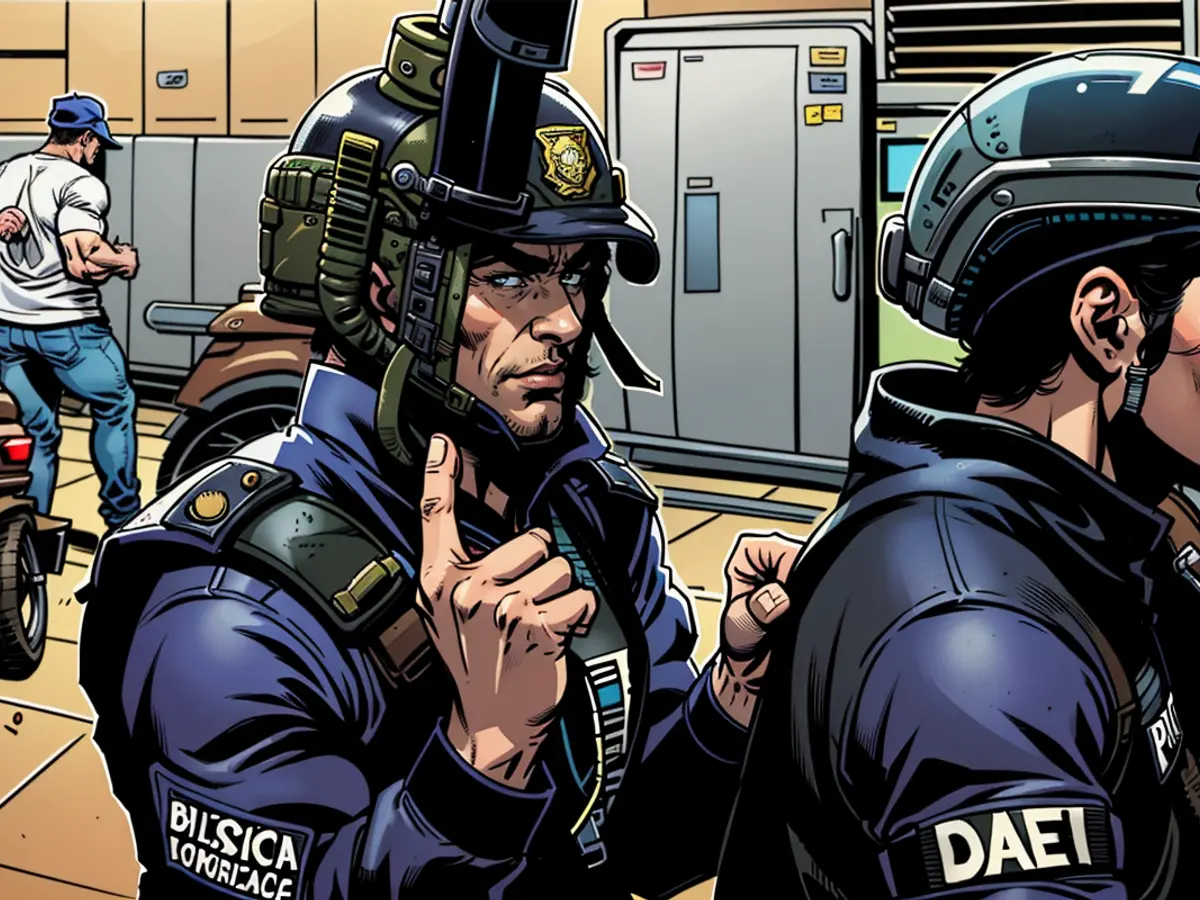Maduro finds himself facing adversaries in previous stronghold regions.
The power tussle in Venezuela remains intense, marked by violence. President Maduro aims to quell any resistance and urges citizens to report political dissidents. Simultaneously, he directly summons his rival candidates, demanding they defend themselves against accusations of disseminating false information.
Venezuelan strongman Nicolás Maduro has grown more authoritarian post-election, which many viewed as rigged. Security forces patrolling poor Caracas districts, traditionally government strongholds, wield machine guns to deter protests. The Maduro regime pushes people to snitch on dissidents while opposition activists go into hiding or flee the nation. Approximately 2,000 government critics currently reside in prisons, facing penalties, such as up to 25 years of labor, in allegedly rehabilitative facilities.
Since Maduro asserted victory in the July 28 election, considered a loss by the opposition, he's swiftly moved to eliminate any remaining civil liberties that separated Venezuela from the dictatorships it's linked with recently, like Cuba, Nicaragua, and Russia.
"He just labels individuals as fascists and puts them behind bars," noted Carlos Correa, head of the Venezuelan free speech organization Public Space. "The political climate is now more extreme, harsher, and confrontational than ever before." Maduro's victory proclamation sparked nationwide protests and sparked hope among some Venezuelans that seeing evidence of his defeat could force him out. However, the subsequent crackdown dashed those hopes and stoked fears that Venezuelan democracy could never re-emerge.
Supreme Court endorses Maduro's contentious win
Maduro's appointed Supreme Court validated his election triumph on Thursday without presenting evidence. The lack of detailed voting tallies was attributed to a "massive cyberattack on the electoral system," as stated by Court President Caryslia Rodríguez. The ruling was widely denounced by opposition leaders and foreign factions critical of the regime. Andrés Villavicencio, an opposition election observer, declared victory last month for his candidate, Edmundo González, in front of cheering neighbors in their polling station. But his jubilation turned to panic as Maduro's security forces started arresting activists challenging the president's claim to have emerged victorious.
The US and ten Latin American countries also rejected the Supreme Court's validation of Maduro's election victory. The eleven nations issued a joint statement condemning the court's decision. Venezuelan Foreign Minister Yván Gil referred to this as an "unacceptable act of interference" in a statement, while the Venezuelan Prosecutor's Office announced it would soon summons opposition candidate Edmundo González Urrutia.
González faces accusations from Maduro's ally
According to General Attorney Tarek William Saab, González is accused by Maduro's ally of disseminating info to a website declaring the opposition's triumph. The 74-year-old retired diplomat will now have to address his "disobedience" towards state authorities. González has been unseen since July 30, when he led an opposition demonstration.
Prosecution targets opposition figurehead
On August 6, the prosecution launched an investigation against González and opposition leader María Corina Machado for "usurping authority, spreading misinformation, inciting disobedience to the law, inciting rebellion, and forming a criminal organization."
The statement was signed by the US and Argentina, Costa Rica, Chile, the Dominican Republic, Ecuador, Guatemala, Panama, Paraguay, Peru, and Uruguay. They criticized the court's lack of independence and impartiality and referred to the supposed review of election results as a "sham."
The US slammed the Supreme Court's decision in Venezuela, calling it unreliable. It pointed to evidence indicating the opposition candidate, González, emerged victorious. "The will of the Venezuelan people must be respected," stated US State Department spokesman Vedant Patel.
USA: Venezuela continues to isolate itself
As Maduro's repression continues, US representatives warn of fresh sanctions against Venezuelan officials implicated in vote fraud and assaults on civil society. "This action will only further isolate Maduro from the global community," said Brian Nichols, the US State Department's top official for the Western Hemisphere. Previously, the US attempted to entice Maduro into holding fair elections to lift economic sanctions on Venezuela's oil-rich economy.
In clandestine talks in Qatar in 2023, the US and Maduro discussed a possible amnesty for the president in exchange for dropping legal charges, but he rejected the offer, declining to relinquish power, according to individuals familiar with the negotiations. The White House maintains it has not made any offers to Maduro since the election.
"We have yet to see conclusive evidence," EU foreign policy chief Josep Borrell stated, referring to the official election results. "Until we witness a verifiable result, we will not recognize it."
Protests following the disputed election have resulted in 27 fatalities and over 190 injuries, according to the Venezuelan Attorney General's Office. Authorities have detained approximately 2400 protesters.
The President of the Republic, Nicolás Maduro, has accused opposition figurehead Edmundo González Urrutia of disseminating false information, leading to González's summons by the Prosecutor's Office. Despite opposition leader Andrés Villavicencio declaring victory in front of neighbors, Maduro's appointed Supreme Court, headed by Caryslia Rodríguez, validated Maduro's contested election win, sparking widespread condemnation.








